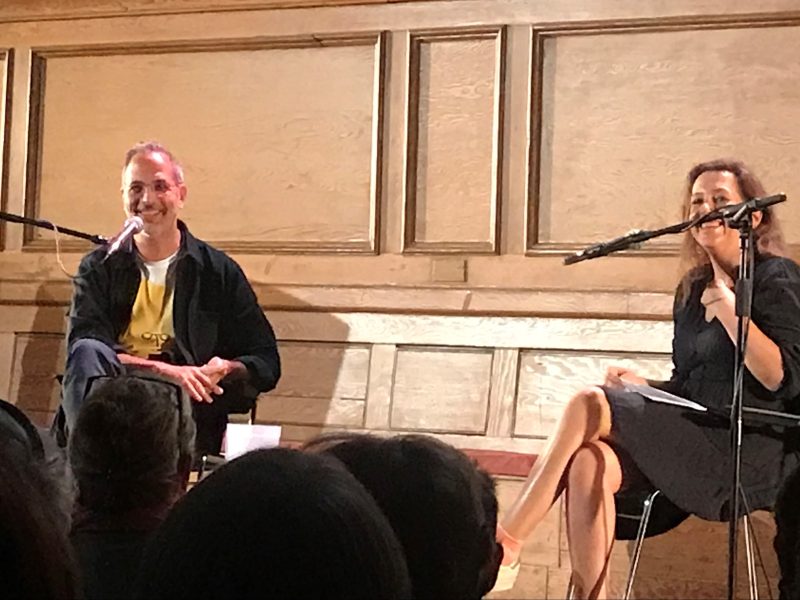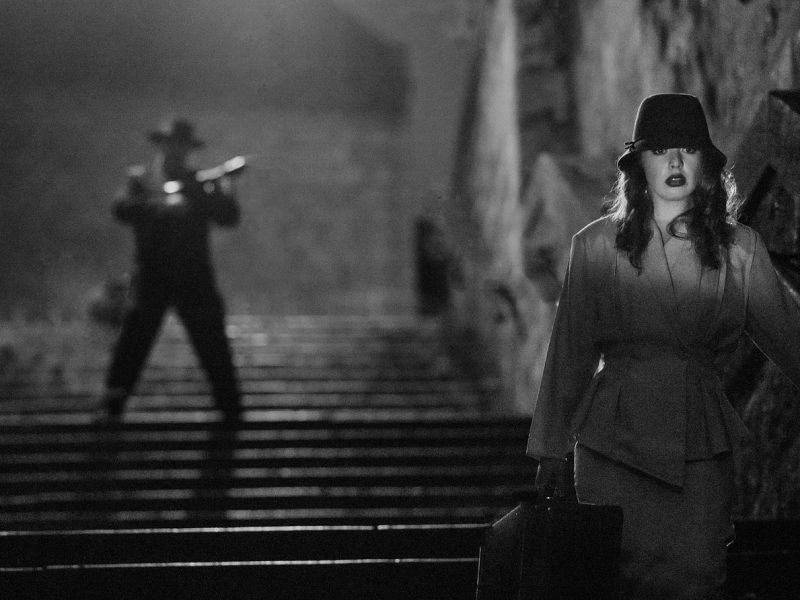By the Mole on The Hill
Photograph by Sarah Louise Ramsay
Kitty: What’s that building down there with people going in and out?
The Mole: That’s the Community Library.
Kitty: There must be lots of books there. Where do they all come from?
The Mole: The library volunteers decide what the library needs and they have a fund for buying them.
Kitty: Those volunteers must read loads of books.
The Mole: They do. Some of them write the books as well. See that woman down there. She’s one of the people who chooses the books. She’s also a very famous writer.
At the time of her birth in 1944, Caroline Moorehead’s father, Alan Moorehead, was one of the most successful writers in English of his day. As an Australian he had reported on the war in Europe and written several books, including Gallipoli, which was a bestseller. Caroline’s mother was the journalist Lucy Milner. With parents like that, it’s no surprise that Caroline and her two brothers all became writers.
“My father was war correspondent with the Allied Forces for the whole of the Italian campaign and he fell in love with Italy. So in 1946, when I was three, we moved there, to Fiesole for three years. Then we came back to London where I did some of my schooling at the French Lycée. My father wanted to move back to Italy but my mother was not keen, so they agreed to give it a year before they decided. That summer of 1956 it rained every day in England so the decision was made. We went back to Rome and my father built a house in southern Tuscany.”
Off to the French Lycée in Rome then, and after that a year at a boarding school in Switzerland. By the time she was sixteen Caroline had her A Levels; but what was she to do? Too young for university. No problem. Spend some time at the Sorbonne. Eventually she read Philosophy and Psychology at New College, London. It must have been about this time, when Caroline was twenty-one, that her father had a catastrophic stroke.
“It was awful. He’d had a string of successes, he’d built the house in Italy, and suddenly he was struck down. His mind was almost entirely clear, but he couldn’t read and could hardly speak. He could communicate with family and close friends, but for seventeen years he was a sort of prisoner.”
While this was going on, Caroline was building her writing career, first as a journalist. She had married straight after she left university, and went to Rome with her husband, who worked there. Her first job, to her father’s horror, was with the Italian version of Playboy.
“I wrote the captions for the girls: ‘Naughty Susan likes knitting.’ Then I got a job as a reporter for Time magazine. They had a big office in Rome with three correspondents and me as their reporter. I had an excellent editor who really taught me to write. Then after three years we came back to England for Jeremy to do a PhD and me to spend a very unhappy year as a feature writer for the Daily Telegraph.”
The next move was to be a feature writer at The Times for four very happy years. There her editor was William Rees-Mogg, who was ‘wonderful with young writers’ (shame about the son). He allowed Caroline to do six months on at The Times and six months off, which allowed her time to write books.
“I’ve never written fiction, no imagination. I’m too literal, fascinated by facts. I started writing biographies, but I wanted to move more into history. With the four books I’ve written about the Resistance, I feel I’ve achieved that. Call it ‘historical biography’. I suppose it’s my journalism background that ensures I have never written any books that have not been commissioned. I make a proposal to the publishers; if they like it, I get an advance which I live off until I make the next proposal. If I’m lucky there will be some royalties. It takes me three years for each book: two years for research and one year of writing.
“I was incredibly lucky with the first book of The Resistance Quartet, A Train in Winter. It was picked up by the Oprah Winfrey of Canada and it took off, selling well in America and France. But it’s a sort of alchemy: you never know how a book will sell.
“Writing is my comfort blanket. On a typical day I start at 8.30am and work through to 5pm, seven days a week. If I’m in the library, it will be five days a week. I quite like subjects which take me just sufficiently into the past for there to be some people alive that I can talk to. When I started, I was keen on interviewing, but over twenty-five years I have acquired a passion for archives. I take an insane amount of notes. I might read 400 books for each book I’m researching, and I take 40 pages of notes on each one, written by hand in notebooks. And all those notes have to be read and organised and filed.”
Alongside the writing, Caroline has always been involved in human rights. At The Times she had a weekly column called ‘Prisoner of Conscience’. This was taken up by a colleague, Rex Bloomstein, who wanted to put her articles on TV, so Caroline wrote and co-produced the programmes. Her book, Human Cargo, involved her travelling around the world looking at different situations through the eyes of refugees. She helped to start a refugee legal office in Cairo, which ran for ten years until the political situation made it impossible to continue. She also met and helped Harriet, a young Ugandan refugee whom she now looks upon as her daughter.
“One of the people I worked with was Helen Bamber, an amazing woman. She started the Medical Foundation for the Victims of Torture, and when she started the Helen Bamber Foundation, I was a trustee; I also translated for her and took the testimonies of refugees. About this time, I was commissioned to write a history of the International Committee of the Red Cross. I was interested because the Red Cross is the housekeeper of war. They are allowed anywhere so long as they don’t make public what they find except to the government involved. It was fun to do, but it finished up a terribly fat book.”
With Caroline’s experience and intimate knowledge of refugees, it’s interesting to know what she thinks of the way the present government deals with refugees.
“The notion in this country is that the culprits are the traffickers; if we can hit them, it will be fine. This totally begs the question of why people become refugees in the first place. Nobody wants to be a refugee. Either their own human rights have been destroyed, or war and hardship have made it impossible for them to live where they live. The way this government has criminalised refugees is only one of the terrible things they have done. The notion of sending them off to Rwanda is nothing short of grotesque.”
Besides being on the committee that buys books for the library, Caroline volunteers at the Community Centre Wellbeing Café, washing up and serving soup, jacket potatoes and homemade cakes.
“I love it. First of all, I love not being alone, because one of the downsides of the writer’s life is that I spend a lot of my life alone. There’s no way to write a book other than being alone, so I really love that once a week I volunteer in the café. Secondly, I spend too much of my time locked in my head, and I realise that’s a side of me that’s inappropriate in the café. I have to be much more forthcoming. I can’t just silently do the washing up. I have to go out and talk to people and see if I can do anything for them. I really enjoy that.”
Beside the writing, one thing both Alan Moorehead and his daughter Caroline have in common is an OBE: Alan for his fearless work as a war correspondent – he was trice mentioned in dispatches – and Caroline for her contribution to literature.
“To the great mirth of my children, I was awarded the OBE. They said I’d never be able to curtsey. But I practised and I got it right. So there.”
Kitty: So it’s quite hard work being a writer.
The Mole: Doesn’t seem to be an easy way of doing it.
Kitty: I don’t think could put in all that hard work.
The Mole: You never know. You might find that like Caroline you can’t help it. That seems to be the way it works.
Caroline’s most recent book, Edda Mussolini: The Most Dangerous Woman in Europe, is available from Primrose Hill books.




